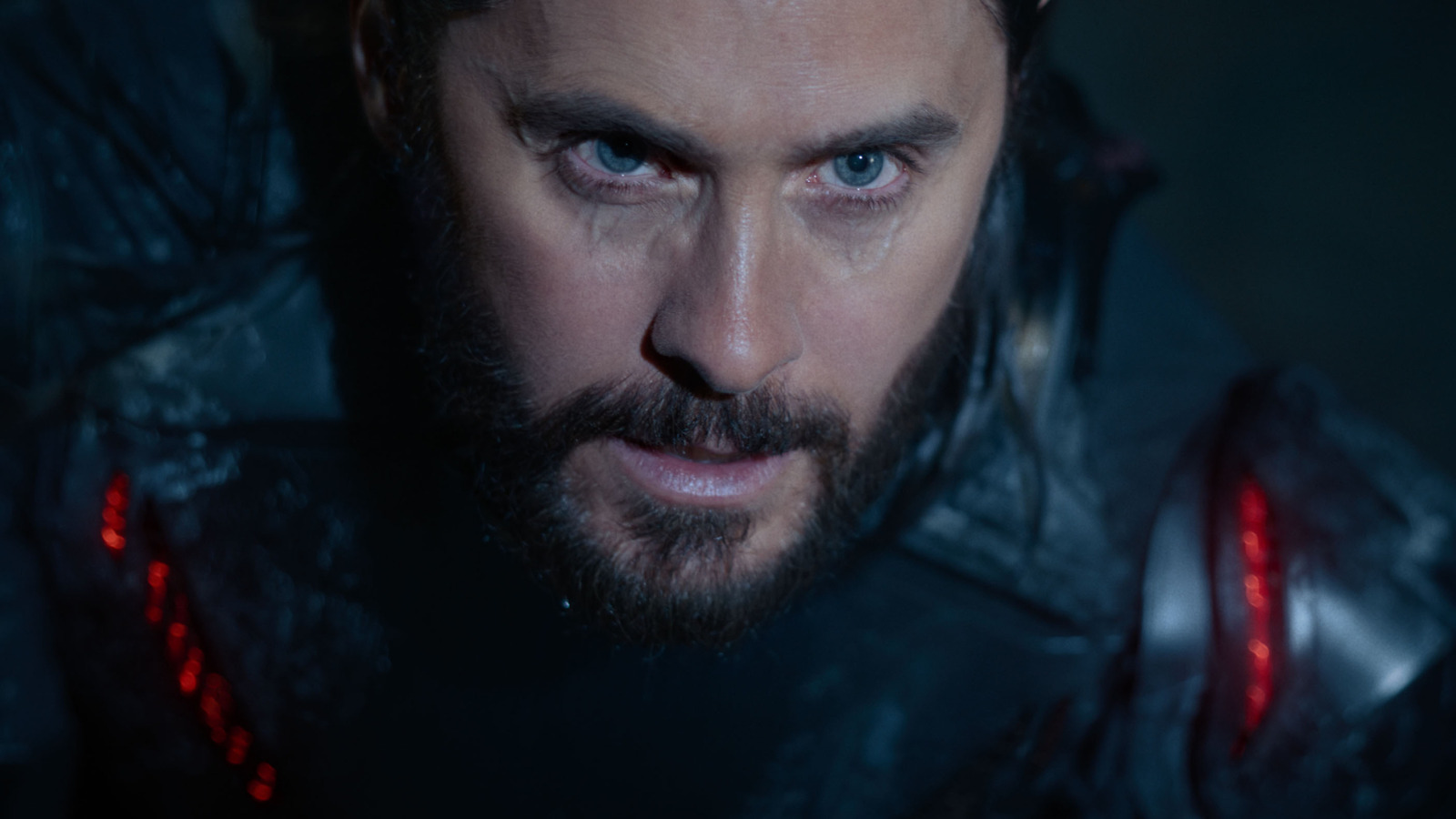Earlier this week, Sony Pictures Animation’s “KPop Demon Hunters” made Netflix history.
It became the first Netflix original film to reach a new viewing peak in its sixth week – a massive 26.3 million views, topping the previous week (25.8 million) and the week before that (24.2 million). In its sixth week it also became “the most popular Netflix animated film of all time,” according to the streaming giant.
Additionally, it was in the top 10 in all countries ranked and it should be entering the Netflix all-time top 10 in the next week or so. Plus, “Golden,” a song from its bop-filled soundtrack, returned to the #1 spot on the Billboard Global 200. All of this cemented the fact that “Kpop Demon Hunters” isn’t just a movie but a rare worldwide phenomenon.
TheWrap has learned that “KPop Demon Hunter” is about to expand into a number of related projects, including sequels and a live-action version.
The animated film, with English dialogue but set in Seoul, features a trio of K-pop singers whose infectious songs power their ability to battle hordes of demons. It has become a phenomenon boasting tens of millions of streams and whose songs have topped the charts. The show, which is aided by growing interest in Korean culture, has proven to be a draw for both adults and kids alike.
During the second quarter earnings call earlier this month, Netflix co-CEO Ted Sarandos singled out “Kpop Demon Hunters” as “a phenomenal success out of the gate … And the fact that people are in love with this film and in love with the music from this film, that will keep it going for a long time. So we’re really thrilled. And now the next beat is, where does it go from here?”
If you’re also wondering what’s next for Rumi, Mira and Zoey, the members of girl group Huntr/x who juggle slaying fans with their infectious beats while also slaying demonic beasts, we’re here to illuminate the possible next steps.

Netflix is referring to the project as its “Frozen” or Disney Princesses franchise – a property that has tapped into the zeitgeist on an unprecedented level and one that the streamer plans to exploit across various channels and mediums, according to two people familiar with the company’s plans. Among the projects being bandied about at Netflix are a stage musical, live-action remake, series and, of course, a pair of sequels to round out a full-on “KPop Demon Hunters” film trilogy, a third person familiar with the situation told TheWrap.
Additionally, much like “Frozen,” there is a short film being discussed to serve as “bridge content” between the mainline features, according to a fourth person familiar with the company’s plans. (“Frozen Fever” was released theatrically in 2015, in between “Frozen” in 2013 and “Frozen II” in 2019.)
The ambitious plans underscore the kind of rare project that is “KPop Demon Hunters,” which benefited from Netflix’s willingness to bet on original animation and the fact that Korean culture has been in the spotlight, resulting in Netflix moving quickly to capitalize on that momentum. Like “Frozen,” it was an initial underdog that broke into a cultural phenomenon, reminding us that surprises can still come out of nowhere.

Similar to Disney’s blockbuster film, Netflix is ramping up merchandising for “KPop Demon Hunters.” The products being sold on Netflix’s official store have been among the most popular this year, even if the company was caught flat-footed early with just a few items. Netflix plans to partner with a number of outside partners which will see “KPop Demon Hunters” flood local malls and big box stores, the fourth person said. South Korean electronics giant Samsung, which recently partnered with the movie for an ad for their Galaxy Z Fold 7 phone featuring the weirdo bird, with a lens array that mirrors the bird character’s multiple eyes, is keen to do more with “KPop Demon Hunters.”
And just like you couldn’t escape “Let It Go,” the KPop bangers that populate the “KPop Demon Hunters” soundtrack will be getting even more exposure, with breakout number “Golden” submitted for Best Original Song at the Academy Awards this year and possible live opportunities being explored, according to an individual with knowledge of the plans.
That’s another sneaky parallel to “Frozen,” which won the Best Animated Feature Oscar, with “KPop Demon Hunters” quietly becoming an early favorite at the Academy Awards.
If there is one snag to the streamer’s plans for aggressive “KPop Demon Hunters” expansion, it’s the fact that original directors Maggie Kang and Chris Appelhans have yet to sign onto additional projects. And for Netflix and Sony Pictures Animation, it will be important to get the (directing) band back together before they go out on tour.
Regardless, Netflix owns all of the underlying rights to the IP, meaning the streamer can do whatever it wants with the title and its future – with or without Sony Pictures Animation, according to several people with knowledge of the situation. Those sources have all said Netflix and Sony Pictures Animation intend to work on the franchise together.

Underdogs overperform
What makes the success of “KPop Demon Hunters” even sweeter is that it was a project that was perpetually undervalued and discounted.
The movie was announced in 2021 as being in development at Sony Pictures Animation, the studio best known for “Spider-Man: Across the Spider-Verse” (and its sequel) and the popular “Hotel Transylvania” franchise. At the time of its announcement, a release schedule was not immediately identified, but was later added to an ongoing partnership between Sony and Netflix. A year after the film was announced, Netflix registered the trademark for the movie and in 2023, in a Business Insider interview, Tom Rothman, chairman and CEO of Sony Pictures Motion Picture Group, noted that “we’re making a big animated K-Pop musical” for the streaming platform.
In one way, it made sense – Netflix has partnered with Sony Pictures Animation on a number of projects, including Appelhans’ “Wish Dragon,” the Oscar-nominated “The Mitchells vs. the Machines,” Lin-Manuel Miranda’s animated musical “Vivo” and a number of upcoming projects, including Genndy Tartakovsky’s R-rated “Fixed” (out in August) and an animated “Ghostbusters” film.
When the project was brought to Netflix, the company snapped up the rights immediately.
Netflix scheduled the movie for June 20, directly up against Pixar’s “Elio,” a presumed box office hit. (It was not.) There was little fanfare to the release; there was no glossy “art of” book accompanying it, nothing to buy in the official Netflix online store, and the creative team skipped the Annecy International Animation Film Festival, which happened the week before it debuted on Netflix – and where Netflix had a typically oversized presence.
While there wasn’t a proper theatrical release, “KPop Demon Hunters” did appear in enough cinemas in New York and Los Angeles to qualify for the Oscars. It didn’t even have a traditional Hollywood premiere, with Netflix instead opting for a screening at its Tudum theater.
The film’s first week numbers were relatively modest, with just 9.2 million views, according to Netflix. But its second week jumped to 22.7 million, as did demand for merchandise. Netflix was so caught off guard by the desire for merchandise that they started reprinting products that were intended as crew gifts; the plush tiger available on the site right now was originally handed out to those who worked on the movie — and they didn’t have to pay $47.95. Netflix said on July 1 that several “KPop Demon Hunters” items on the Netflix Shop were among “the top five bestsellers of the year.” One of the top items? That tiger plush.

The power of surprise
When TheWrap spoke to Kang and Appelhans in early June, “KPop Demon Hunters” had yet to blossom into an internationally recognized juggernaut. At the time, Kang said that “all of the ingredients of the concept were living separately,” before coming together to form “KPop Demon Hunters.”
“I’ve always wanted to do a Korean project, something that showcased Korean culture and create it for the big feature animation space, because it’s something that we just haven’t seen,” Kang explained. Obviously Japanese animation is a huge deal and Disney-made projects like “Mulan” were steeped in Chinese history. “But I felt like I hadn’t seen anything Korean yet,” Kang said.
She started to think about the way that demons are “represented in Korean media,” which led to the “demon hunters” part of the equation.
The K-pop element, she said, was “the last thing to be added in.” She wanted the spectacle that K-pop brought with it, along with the songs (of course). “There was a space in the superhero area, where I felt like women were not really depicted the way that I wanted to see them,” Kang said. “I wanted to see women who are allowed to be silly and crass and make stupid faces and not be so pretty all the time and have their imperfections. Those are all the ingredients that just came together.”
And in a way, that hyper-specificity of “KPop Demon Hunters” is what made it so universal. Scroll through social media and you’ll see people not only doing dances to songs from the movie, but drawing characters and shipping their favorite love story (people are very upset about the loss of a certain character – we won’t give it away here in case you are not one of the 100 million Netflix views). And while it could have been a hit if the movie had been released theatrically, there’s something that the Netflix platform provides above all else – the chance to re-watch the movie again and again and again.
This harkens back to “Frozen,” which was a huge surprise for Walt Disney Animation Studios, who downplayed the movie’s musical elements and instead emphasized the lovable snowman Olaf. When the movie turned out to be a smash – and its Olaf plush was sold out everywhere – Disney began emphasizing the movie’s other elements and cashing in on its popularity. In the years since, we’ve had short films and streaming content and Christmas specials and theme park attractions. And so too will we be buried in an avalanche of “Kpop Demon Hunters” stuff.
It’s rare in an age where everything is pre-packaged and immensely diagrammed, especially in a place like Netflix which is built on numbers and powered by algorithms, for a genuine surprise to come along. “KPop Demon Hunters” has reminded Hollywood that breakouts are still possible. And once a hit has been established, rewriting history is just the beginning.
Source link




